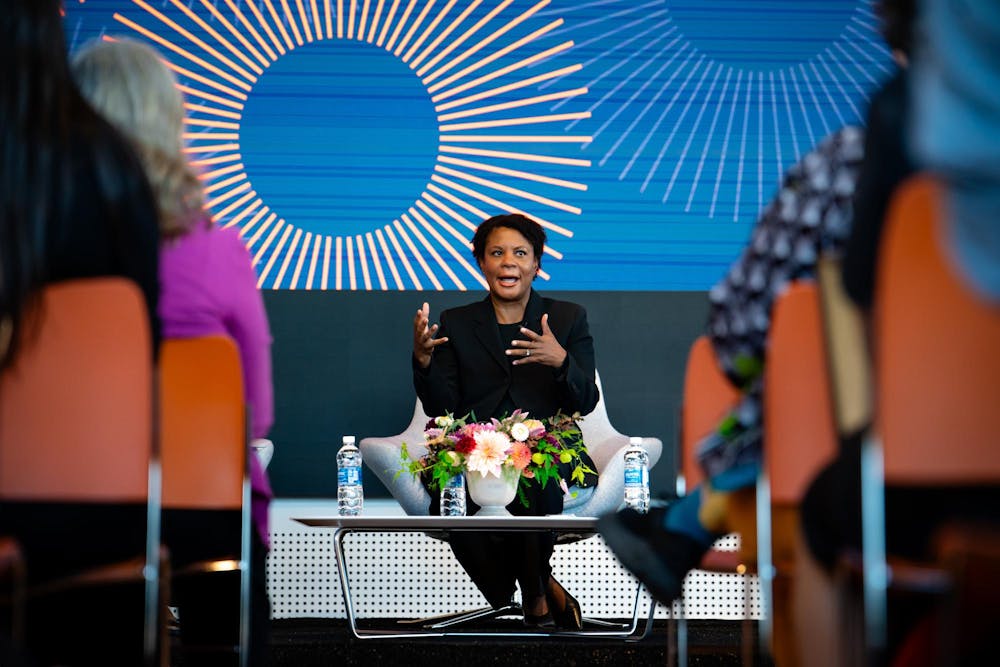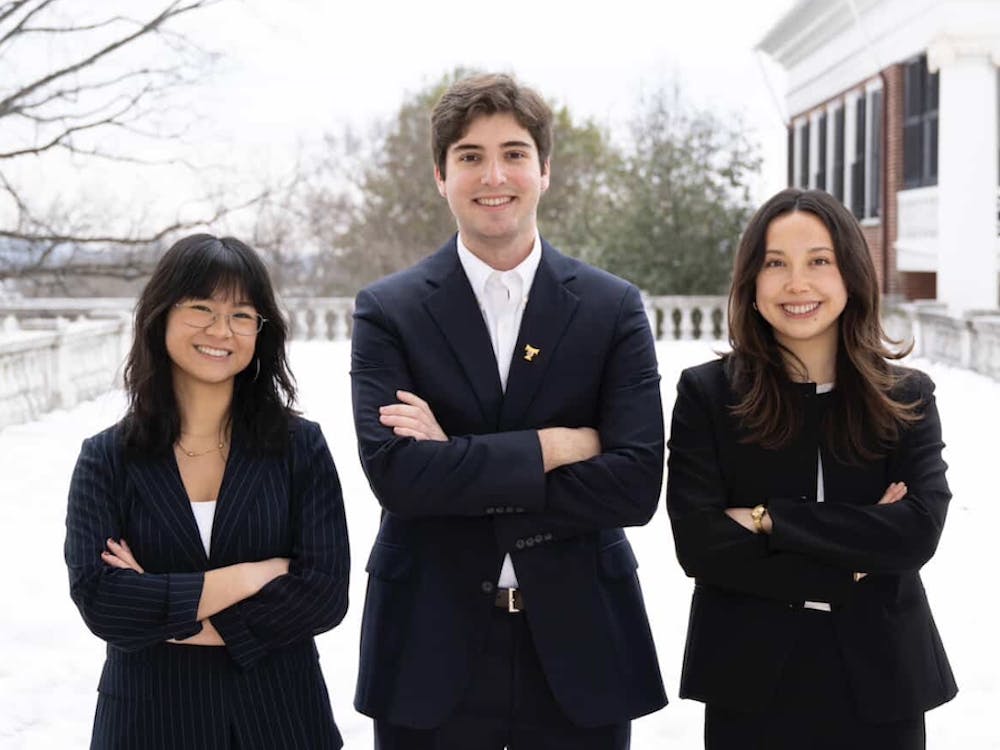Acclaimed scholar and writer Social Science Prof. Alondra Nelson visited the University Tuesday evening to discuss artificial intelligence policy with University faculty members. Melody Barnes, executive director of the University’s Karsh Institute of Democracy, and Yael Grushka-Cockayne, professor of Business Administration at the Darden School of Business, moderated the conversation.
The event was hosted by the Futures Initiative, a program launched January of this year with the stated goal of analyzing trends in higher education to anticipate social and technological changes that will impact the University. The Futures Initiative Working Group, a task force comprising leaders from a variety of the University’s schools and institutes, launched the Futures Initiative Speaker Series to host leaders from a range of industries and disciplines.
Nelson holds the Harold F. Linder Chair at the Institute for Advanced Study — a research center which aims to promote academic freedom and inquiry — where she oversees the Science, Technology, and Social Values Lab.
Nelson began Tuesday’s conversation discussing how she first entered the STEM world. She said that growing up in San Diego, she was surrounded by technological innovations and quickly gained an interest in math and science. She said that at the University of California, San Diego, she majored in anthropology and appreciated the opportunity to study the intersection of people and science.
Prior to joining the Institute for Advanced Study, Nelson served as deputy assistant to President Joe Biden from 2021 to 2023, as well as acting director of the White House Office of Science and Technology Policy for part of 2022.
Nelson discussed her work creating the AI Bill of Rights under the Biden Administration. The bill is a set of nonbinding guidelines aimed to encourage companies to use AI responsibly.
In her comments, she described AI as rising to global importance “almost overnight,” and with it, a need for national AI regulations to preserve democratic principles and protect the privacy of individuals.
“AI should abide by democratic values,” Nelson said. “What does that mean? How do we begin to implement what that means … It is also about the fundamental issue that AI tools and systems should be safe and effective.”
In addition to discussing her work in the White House, Nelson spoke on the use of AI in higher education. Nelson emphasized the need for privacy and protection when using AI, both in and out of the classroom, as well as a need for educators to teach their students how to use AI safely and responsibly. She also urged teachers to be flexible in their teaching approach to accommodate for the new technology.
“It is students that are going to show us how [the technology] is useful, and we can call that plagiarism, or we can call it something else, and give them other ways of learning and other sorts of tools in the classroom … that incorporate the fact that the technology exists,” Nelson said.
A range of students, faculty and administrators attended the event to hear Nelson’s forward-looking advice in regards to AI usage in a school setting.
First-year College student Lily Zavrel said she attended the event as part of an extra credit assignment for her behavioral science course.
“I picked this [event] because it sounded interesting — I think AI is a big deal in our world today,” Zavrel said.
Nelson finished the conversation with advice for students in the crowd. She urged them to study whatever interests them, stating that creating effective science and AI policies requires the perspectives of people working in the humanities, natural sciences and social sciences alike.
“I hope that this moment of generative AI, for all of its challenges … is also opening up all of the things that we need to work on … There’s huge social science questions and research questions. So I hope, my hope for the students, is that this feels like a moment of broadening out.”







